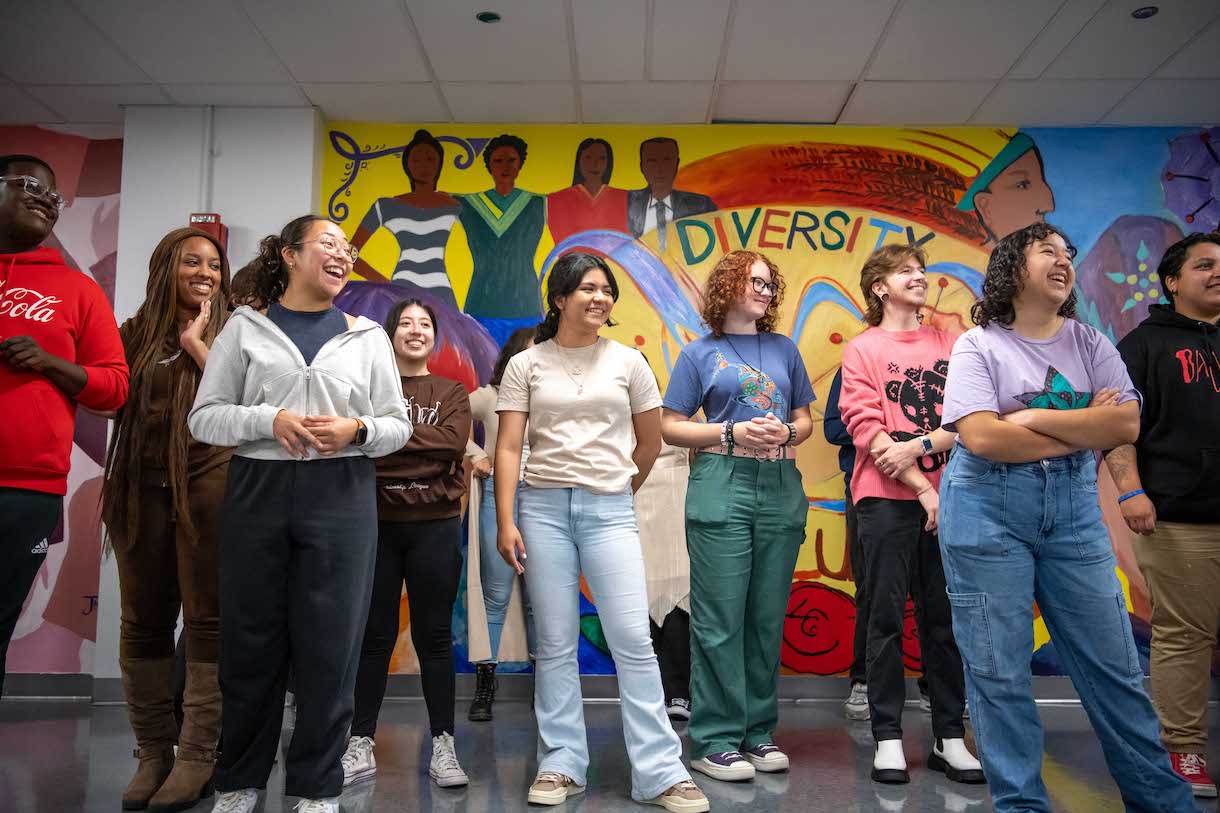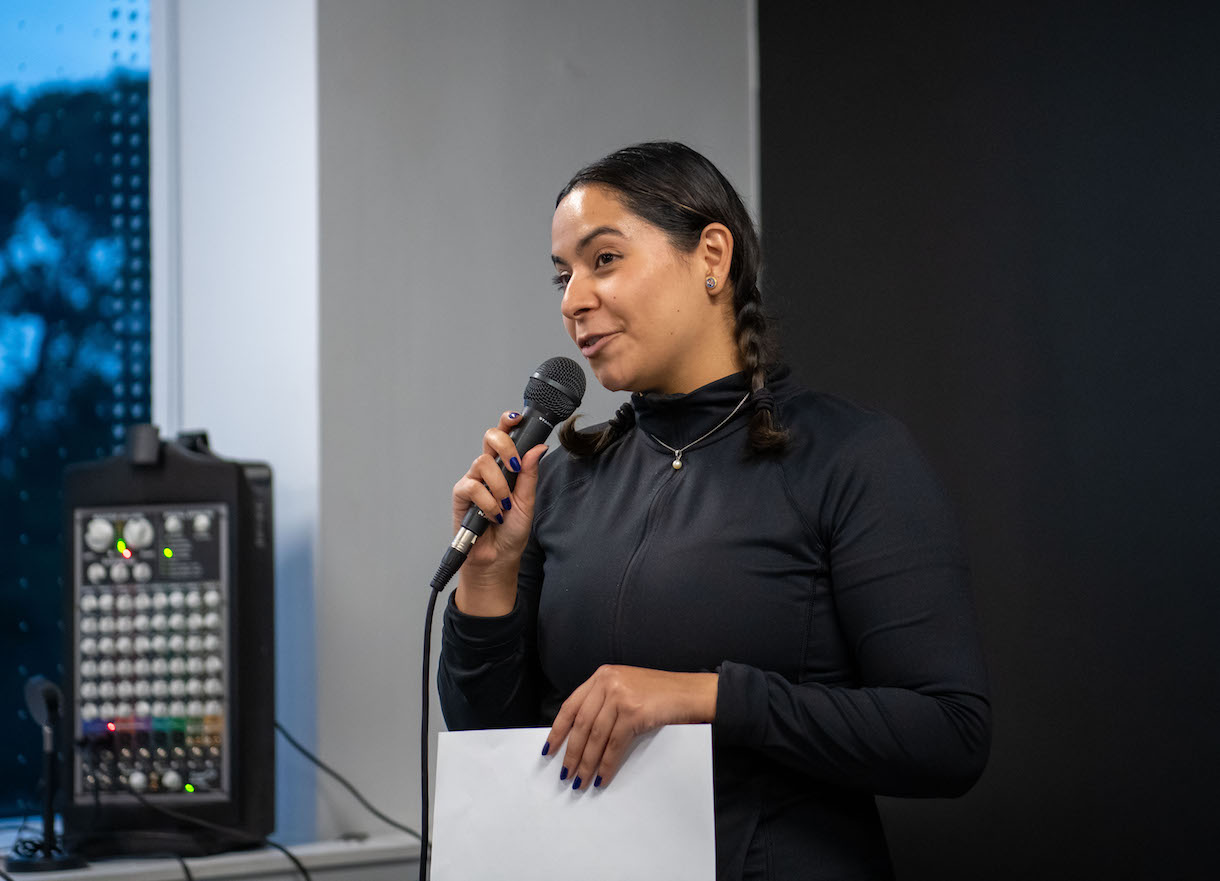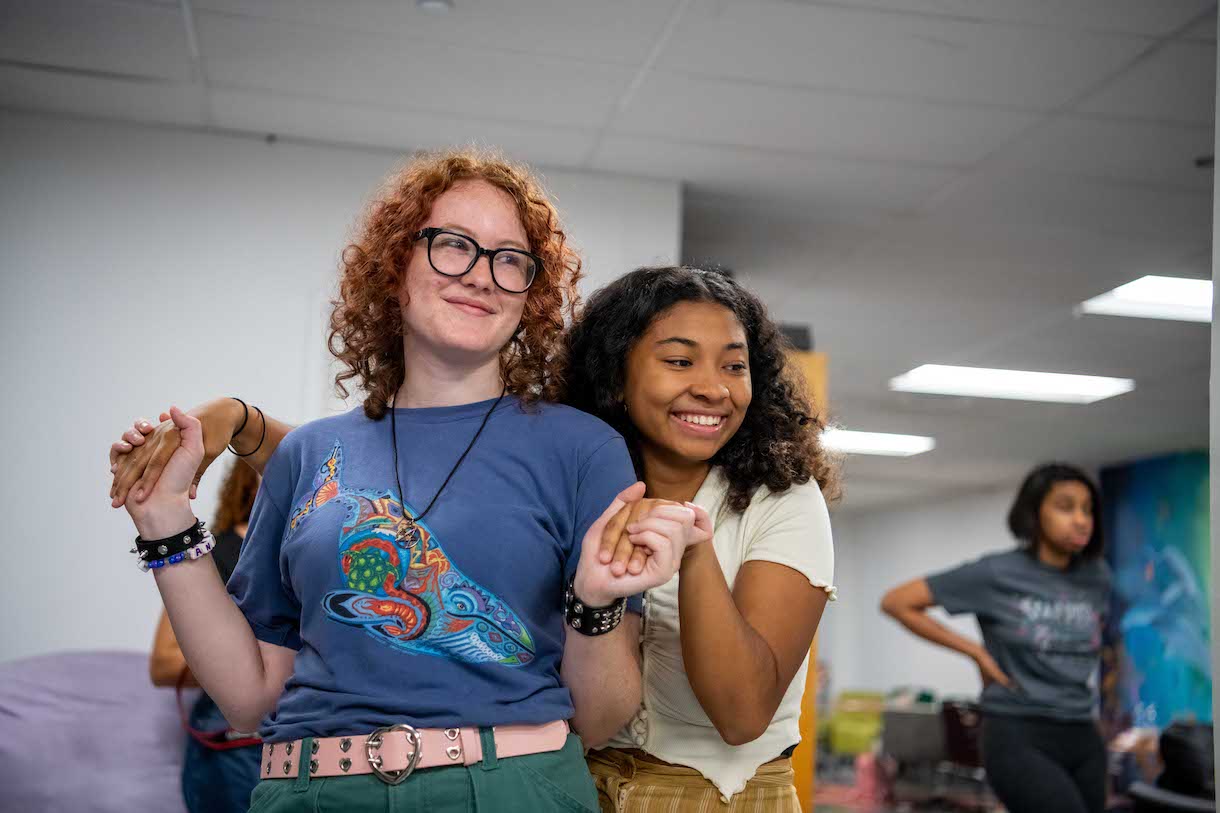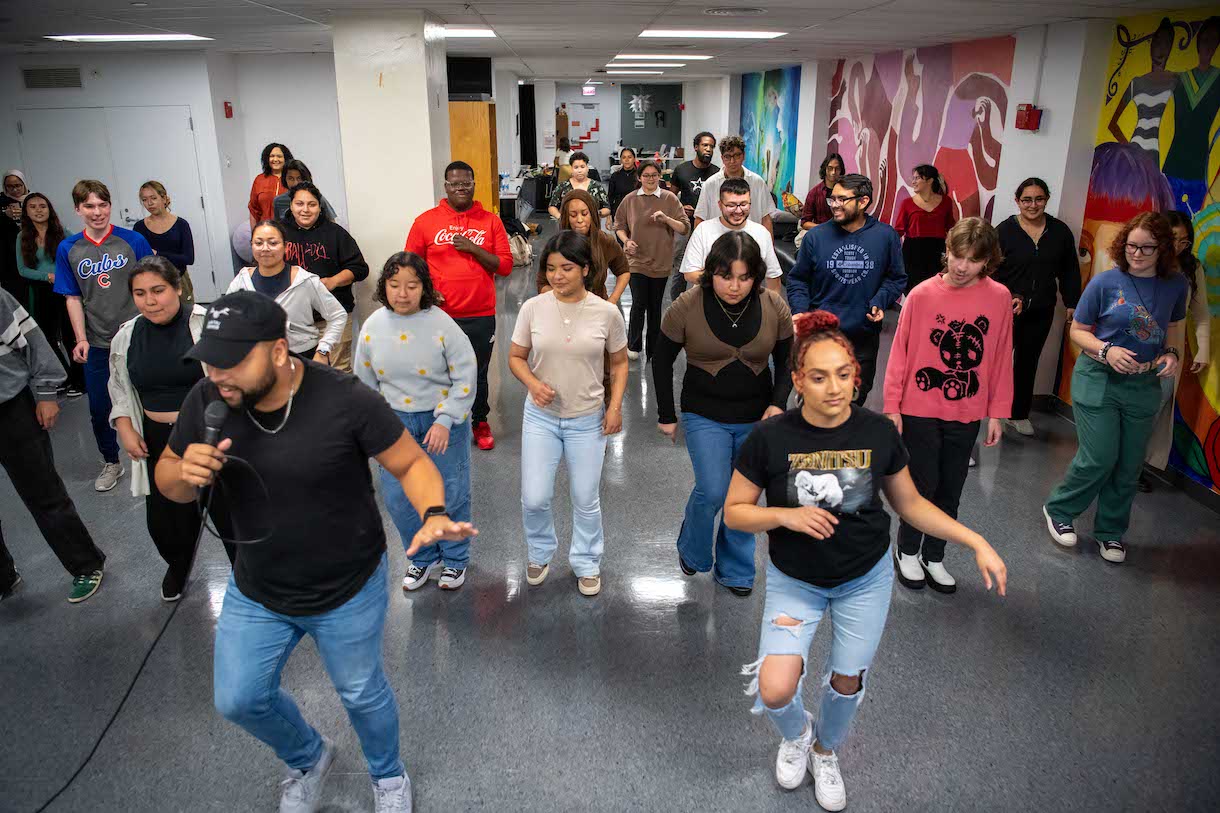"La Cultura Cura" Bridges the Gap Between Heritage and Mental Health
While most educational institutions prioritize diversity, equity, and inclusion, effective DEI efforts have to go beyond cultural appreciation and representation. Ensuring that everyone on campus feels seen and heard requires meaningful, and sometimes difficult conversations about sensitive topics like mental health.
To show inclusivity and support during Latine/Hispanic Heritage Month, Anakaren Pinto, Events and Education Coordinator for Columbia’s Student Diversity and Inclusion (SDI) department has developed a month-long program of events that aims to showcase the culture, history, and contributions of Columbia’s Latine/Hispanic community. Among them is “La Cultura Cura,” (Culture Heals) a mental health conversation featuring Dr. Ricardo Camacho, founder of Salud Chicago.
Pinto was inspired to bring Camacho’s mental health talk to campus after personally attending previous events. "We know that (mental health) is still something not everyone is comfortable with,” she says. “We hear about it more in the media, but I still hear stories, even within my own family, of people who don’t feel comfortable telling their parents, family, or friends that they're attending therapy or want to start.”
On the evening of Thursday, September 28, students, faculty, staff, and guests gathered in Columbia’s Conaway Center to participate in a facilitated dialogue led by Camacho and a group of licensed mental health professionals. Representatives from Columbia's Counseling Services department were also available to answer questions.
Camacho began the discussion by inviting guests to share stories about the ways Latine/Hispanic cultures can both help and hinder healing journeys. Topics discussed included breaking down stigmas and recognizing the unique challenges that individuals from diverse backgrounds often face – such as cultural factors, family expectations, and societal norms.
Steve BrizuelaFernandez, President of Columbia’s Latino Alliance and a senior majoring in Music Business attended La Cultura Cura and shared his thoughts, saying, "I personally loved the event, it feels good to have Columbia host something for Latino students."
BrizuelaFernandez noted that many of the attendees were older than him, but are dealing with similar issues. "Latino culture is very tight and we love to be with family," he says. "Coming to Chicago from New Jersey was a big jump. Back at home it’s me, my sister, and my mom. I was always seen as the man of the house, so when I left my entire family shunned me as a betrayer. That’s had a negative impact on me over the past four years, at times, I considered going back home, but being at La Cultura Cura reminded me that we Latinos can come out of our shells and get that degree."
Another attendee, Aida Frey '23 (Art | Design) shared that she comes from a family who immigrated from El Salvador and that their post-college expectations for her are unrealistic. “They have been pressuring me to find a corporate job immediately after I graduated, but it takes time and experience to climb the ladder,” she says. “I am lucky to have found a part-time designer position at an entertainment company while also working with a record label as a graphic designer. I’m proud that I found two jobs in my field to help me gain experience, but my parents are still pushing me to go the corporate route.”
Frey added that Camacho and his team were very encouraging and shared similar experiences from their younger years. “I am grateful that I am not alone in this situation, and I was able to talk to people who can relate to me,” she says. “I even had someone approach me after the discussion, encouraging me to keep gaining experience and building my resume. This event made me feel heard.”
Camacho reflected on the event’s success in a follow-up email, saying, “We filled a venue with people who were courageous and willing to help normalize the conversation about mental health – especially in ways that work for us through celebration and community.”
Camacho is a licensed psychologist and clinical assistant professor in the School of Psychology at Loyola University Chicago. Born and raised in Chicago's Pilsen neighborhood, he is the son of Mexican immigrants and was a first-generation student. He founded Salud Chicago with the goal of breaking the generational cycle of silence around mental health. The name comes from the Spanish word for “health” and is often spoken during a toast. Camacho explained that through his work, he’s found that the most powerful and healing discussions often happen in safe, welcoming environments where people feel recognized, appreciated, and understood.
Like many others at the event, he shared that conversations about mental health didn’t happen while he was growing up. “It wasn’t normalized for me or for my parents to talk about the struggles we faced,” he says. Later in life, he became a psychologist and realized the power of therapy. Camacho believes that the various facets of Latine/Hispanic cultures can serve as both powerful resources and potential obstacles in healing journeys.
“Recognizing these complexities is essential for fostering a holistic approach to health and well-being within communities,” he says, “And when a community consistently addresses mental health and cultural issues, it becomes more equipped to push for the necessary changes at institutional and systemic levels.”
For Pinto, the intention behind every SDI event she plans at Columbia is for all participants to feel seen and celebrated – and to leave knowing that their voices matter.
“When it comes to mental health, I believe we all have more power than we know,” she says. And collectively, we get to decide what our new chapters will look like. Will we continue to look down on mental health, or will we build a future where it is normal to say, ‘I need a mental health day,’ or ‘Hey Mom and Dad, I’ll be late to the carne asada because I have a therapy appointment?’ I hope we can get to a place where we say, ‘That sounds great.’”
Check out the sidebar to RSVP for upcoming Latine/Hispanic Heritage Month events at Columbia or browse more events on Engage.
Upcoming Events
Tuesday, October 10, 6:30 p.m.Movimiento Martes – Merengue (students only)
The Garden, 1019 S. Wabash Ave.
Thursday, October 12, 12:30 p.m.
Mexican Museum of Art Excursion (students only)
Student Diversity and Inclusion, 618 S. Michigan Ave., 4th floor
Tuesday, November 1, 6:30 p.m.
Dia de Los Muertos Celebración (open to the public)
618 S. Michigan Ave., 1st and 4th floors
Recent News
- Alum Patricia Kara’s New Book Offers Behind-The-Scenes Look at the Entertainment World
- Grace Kessler Overbeke to Present The Many Mrs Maisels 20th Century US Jewish Female StandUp Comedians
- ASL Conference Brings High School and College Students Together at Columbia College Chicago
- What to Watch and Where to Wander This Winter: Columbia Edition
- Five Columbia Students Earn Prestigious Fashion Scholarships



